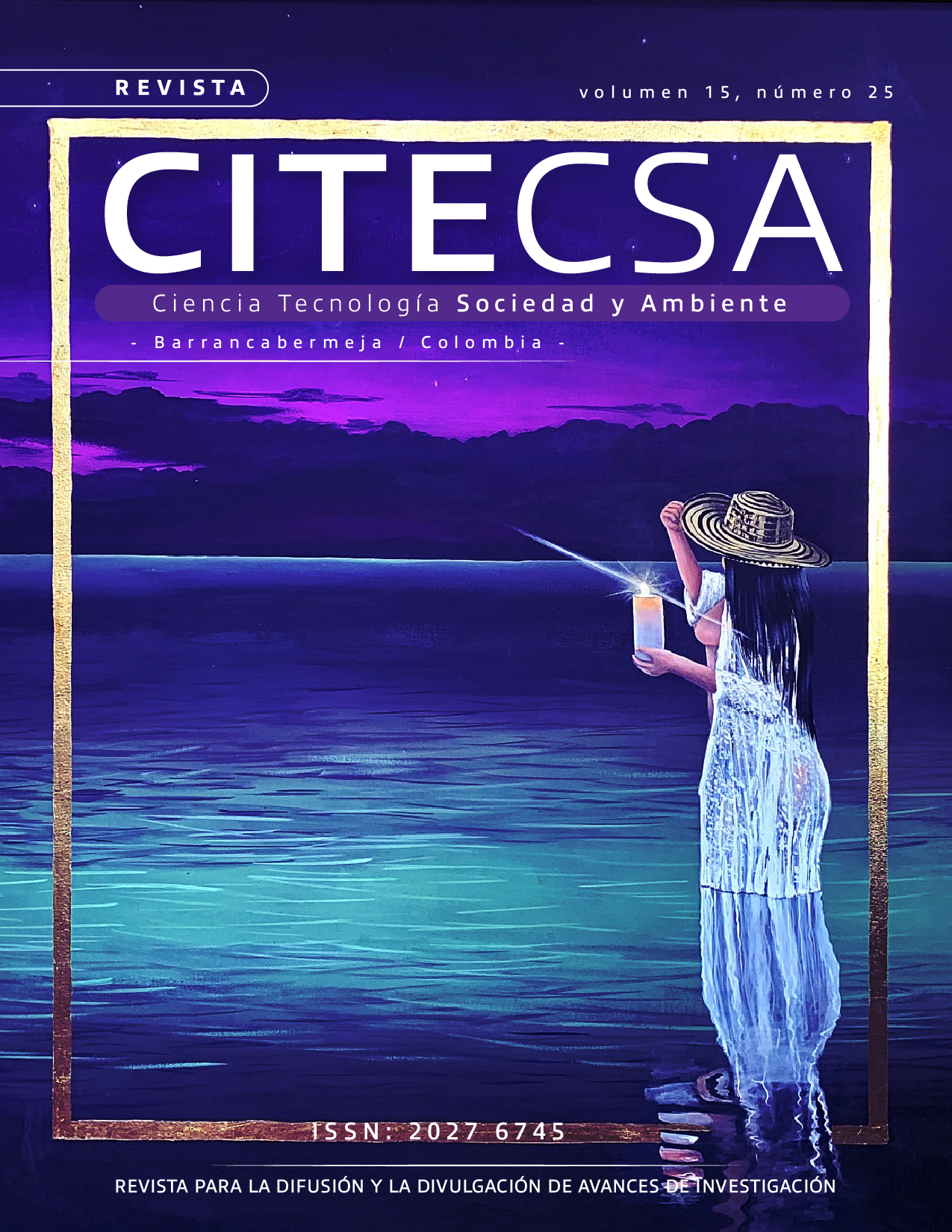Physicochemical evaluation of the oil obtained from the coffee bean (Coffea arabica) using different extraction methods for its potential use in the production of biodiesel
Keywords:
Biodiesel, biodegradable, renewable, oil, coffee grounds.Abstract
Biodiesel is a renewable, biodegradable, and non-toxic fuel, comprised of monoalkyl esters of long-chain fatty acids derived from vegetable oils or animal fats. Worldwide, the need has arisen to search for new production alternatives from agro-industrial residues such as coffee grounds. The purpose of this research was to find a method for oil extraction from spent coffee grounds for its subsequent use in the production of biodiesel. The oil extraction process was carried out through steam stripping, Soxhlet, and mechanical agitation methods; using different solvents such as water, hexane, ether, and methanol, the best result was observed with the Soxhlet method using hexane as a solvent. Physicochemical characterization of the oil obtained was made. It was concluded that the oil obtained from spent coffee grounds presents adequate physicochemical properties to be used in the biodiesel production according to Colombian technical standards, because its low humidity, acidity, iodine, and saponification index give it stability against undesired reactions such as the formation of soaps or gums as well as reducing oxidation, polymerization or hydrolysis processes..
References
REPÚBLICA DE COLOMBIA, Ministerio de agricultura y desarrollo rural. Bogotá D.C.; [Consultado: 16 de octubre de 2019] Disponible en http://www.minambiente.gov.co
ORGANIZACIÓN DE LAS NACIONES UNIDAS PARA LA AGRICULTURA Y LA ALIMENTACIÓN, Bioenergía y seguridad alimentaria “BEFS”: El análisis del BEFS para el Perú. Yasmeen Khwaja. 2010, [consultado el 13 de noviembre de 2019]. Disponible en: http://www.fao.org/3/i1713s/i1713s01.pdf.
Lombana Coy, Jahir; Vega Jurado, Jaider; Britton Acevedo, Emyle y Herrera Velásquez, Silvia. (2015). Análisis del sector biodiesel en Colombia y su cadena de suministro. Editorial Universidad del Norte, 23 ed. Barranquilla (Colombia). ISBN 978-958-741-648-0.
Tabio García Danger. (2017). Extracción de aceites de origen vegetal. (Tesis, Universidad tecnológica de la Habana). Disponible en: https://www.researchgate.net/publication
Núñez Carlos E. (2007). Extracciones con equipos Soxhelt. Disponible en: http://www.cenunez.com.ar/archivos/39-ExtraccinconequipoSoxhlet.pdf
López Fontal, Elkin.; Castaño Castrillón, José. (1999). Extracción de aceite a partir de subproductos del café. Cenicafé Revista ingeniería e investigación. Vol. 50 (1): 66-77. Disponible en: https://www.cenicafe.org/es/publications/arc050%2801%29066-077.pdf
Arias, Lorena; Gómez, Leidy J y Zapata, José E. (2017). Efecto de Temperatura-Tiempo Sobre los Lípidos Extraídos de Vísceras de Tilapia Roja (Oreochromis sp.) Utilizando un Proceso de Calentamiento-Congelación. Inf. tecnol. Vol. 28 (5). 131-141. Disponible en: http://dx.doi.org/10.4067/S0718-07642017000500014
Bravo Murillo, Daniel Alejandro y Montes Bernal, Manuel Fernando. (2016). Influencia de factores de almacenamiento en la estabilidad química de biodiésel de palma. (Tesis. Universidad libre, facultad de ingeniería, departamento de ingeniería ambiental).
Atabani, A. E. et al. (2012). A comprehensive review on biodiesel as an alternative energy resource and its characteristics. Renewable and Sustainable Energy Reviews. Elsevier. Vol. 16 (4). pp. 2070-2093. ISSN 1364-0321. Disponible en: http://www.sciencedirect.com/science/article/pii/S1364032112000044
González Valdés, Roberto P.; Rodríguez López, Yanara; García Taín, Yelene; Fernández, Lucía. (2010). Consumo de combustible de los motores de combustión interna. Revista Ciencias Técnicas Agropecuarias, Universidad Agraria de La Habana, Fructuoso Rodríguez Pérez. La Habana (Cuba). Vol. 19 (1), pp. 1-6. ISSN 1010-2760. Disponible en: https://www.redalyc.org/pdf/932/93218954001.pdf
INSTITUTO COLOMBIANO DE NORMAS TÉCNICAS Y CERTIFICACIÓN (INCONTEC). (2002). Grasas y aceites animales y vegetales: Determinación del índice de refracción. NTC 289, Bogotá D.C.
Rivas, Cleodaris; Rondón, Jairo; Meléndez, Hildemaro; Lugo, Claudio; Belandría, Lynda; Uzcátegui, Álvaro; Del Castillo, Héctor; Rodríguez, Pedro; Gonzáles-Cortes, Sergio. (2017). Transesterificación de aceite de palma en biodiesel utilizando como catalizador un óxido mixto proveniente de hidrotalcita (Mg/Al). Ciencia e Ingeniería. Vol. 38 (3). Disponible en: http://www.redalyc.org/articulo.oa?id=507555085002.
Downloads
Published
Versions
- 2023-10-30 (5)
- 2023-10-30 (4)
- 2023-10-30 (3)
- 2023-10-30 (2)
- 2023-10-30 (1)
How to Cite
Issue
Section
License
Copyright (c) 2023 CITECSA

This work is licensed under a Creative Commons Attribution-NonCommercial-ShareAlike 3.0 Unported License.

Este obra está bajo una licencia de Creative Commons Reconocimiento-NoComercial-CompartirIgual 3.0 Unported.

